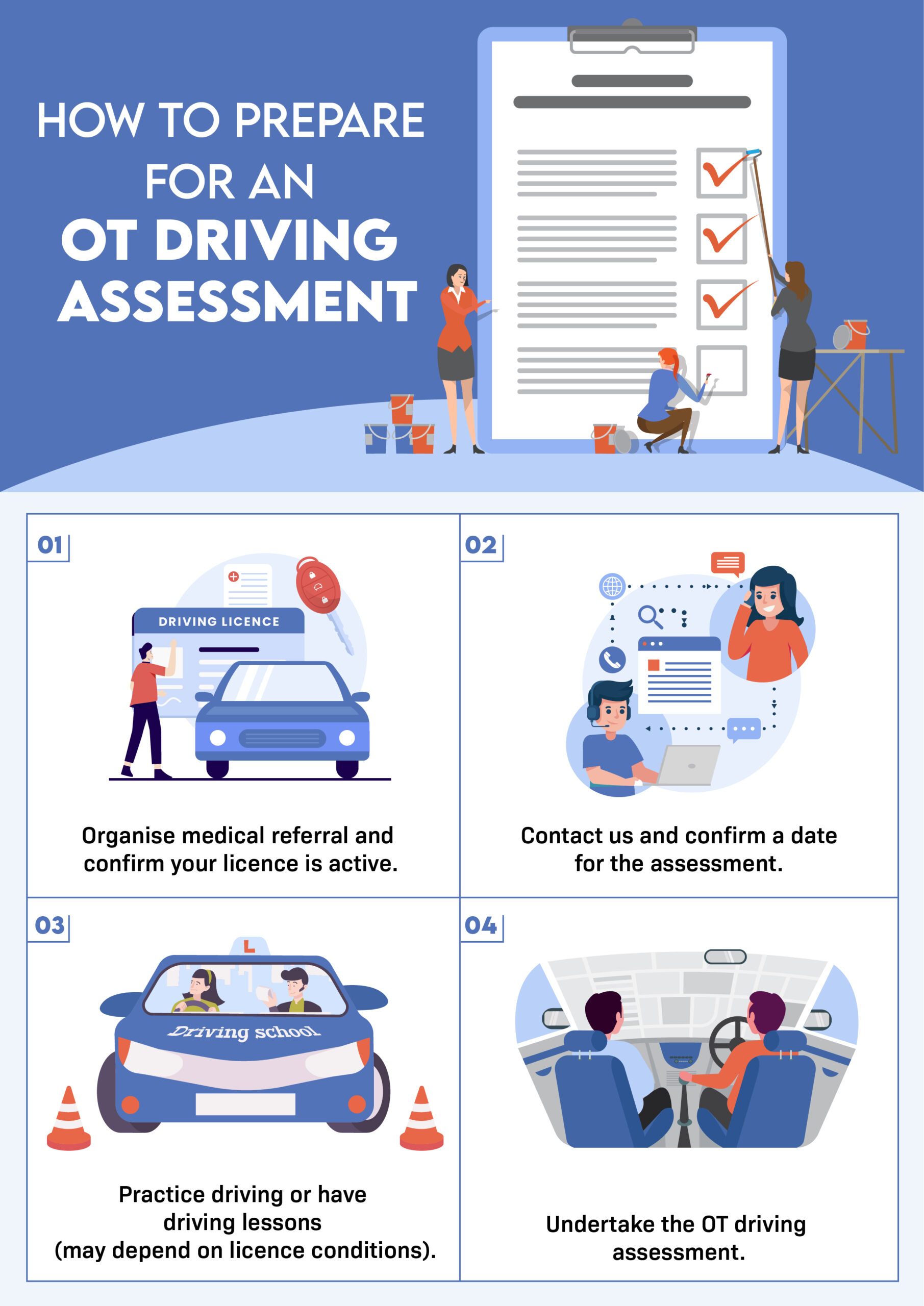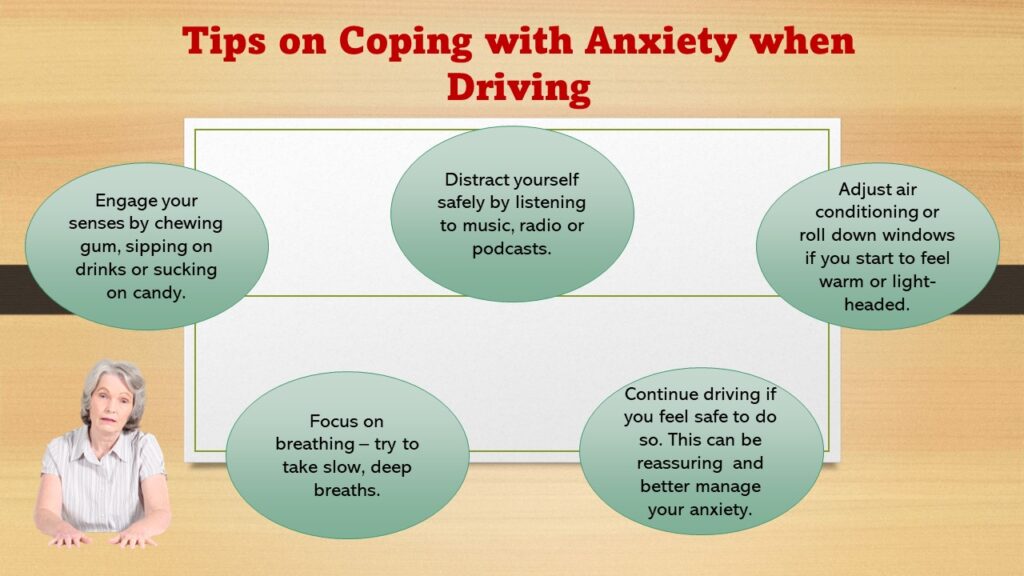Importance of driving
Driving is a complex activity that requires a high level of ability and coordination between one’s physical, visual and cognitive faculties. It is also the riskiest activity that most people engage in on a daily basis, although this is often overlooked. For some people, driving can cause anxiety, the level of which varies from one person to another. Individuals may have generalised anxiety disorders (or other mental health issues), however some people may become anxious specifically when driving or travelling in cars. Anxiety can be defined as emotions and feelings characterised by worry, tension and nervousness that can lead to physical symptoms such as sweating, raised blood pressure or dizziness. This article discusses how you can deal with your driving-related anxiety.

Possible causes of anxiety
Feelings of nervousness or anxiety is a normal and healthy human emotion, people will generally experience these feelings at some point in their lives. For example, it is common for people to feel worried or anxious when they have an upcoming exam, starting a new job or about to give a speech in public. Some people may experienced increased anxiety when they drive, which may be caused by the following:
– Stress: Driving can be a stressful task for many people, and stress may lead to anxiety
– Previous trauma related to driving or travelling in cars: Some people may have experienced traumatic situations, such as car accidents, causing them to become anxious.
– Panic attacks: People may experience panic attacks while driving, causing increased anxiety levels.
– Fear: Some people may become fearful of driving because they hear about accidents or other dangerous experiences on the roads. For example, someone may become fearful of travelling in a car if they hear about a serious accident nearby. This fear can possibly lead to anxiety.
How to manage driving related anxiety
Depending on the intensity of your anxiety and how much it is impacting on your everyday life, you may be able to make some adjustments to your situation to reduce your fear and anxiety. For those with severe anxiety, you may benefit from professional help, such as counselling and therapy with a psychologist. Below are some ways you might be able to better cope with your anxiety so that you can still drive safely.
- Undertake an occupational therapy driving assessment to learn defensive driving strategies – Doing lessons with a rehabilitation driving instructor can help you to develop strategies to cope with your anxiety when driving. These specialised driving instructors have experience working with people with various medical conditions.
- Persist with driving – It is easier said than done, but it is often important to “face your fear” and continue to drive if you want to conquer it. It is true that practice makes perfect, and the more you hone your driving skills, the more confident you are likely to become with the task. You may even try practicing in quiet environments like quiet streets or empty car parks.
- Drive in situations and environments that you’re comfortable with – Stick to slow, non-busy roads if you can.
- Don’t make yourself more anxious by driving safely – If you already have anxiety related to driving, do not increase it by taking risks or driving dangerously.
- Mindfulness strategies – Mindfulness is a coping technique that involves you becoming more aware of the signs of pressure and stress. By practicing mindfulness, you might be able to better identify and regulate your emotions, thereby being able to manage each symptom and feel more at ease.
- Use relaxation or distraction techniques – Various breathing techniques or listening to music that helps you relax while driving may be helpful.
- Medications – Depending on the level and nature of your anxiety, you may already be taking medications that help reduce anxiety, such as antidepressant or anxiolytic medications. While you need to be very careful about taking medications before driving as you do not want to become sedated, it might be suitable for you to program your medication regime or take additional medications if you are planning to do a significant amount of driving. Make sure to consult your Doctor about your medications and driving.
When to get professional help
If your anxiety is severe to the point that it is often stopping you from driving, you may benefit from additional assistance from a professional. This can include seeing your doctor or getting counselling or psychology sessions with a mental health professional. It is paramount that you feel safe when driving. If you feel that your anxiety and having a significant impact on your confidence to drive and overall driving capacity, it may be beneficial to seek professional help. A trusted counsellor or psychologist may be able to help you develop ways to deal with your driving-related anxiety.





